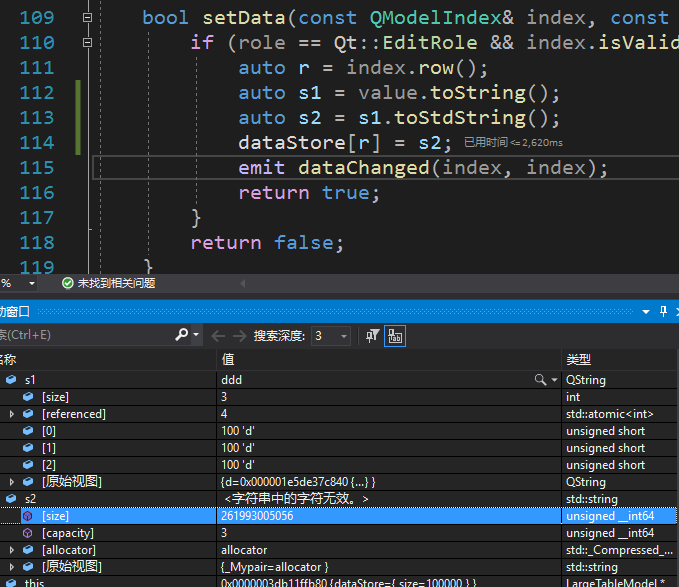After using toStdString, the string exhibited abnormal behavior.
-
@John-Van
My first thought is that you cannot guarantee the code generated has even written anything into yours2variable. It's just a local variable and never referenced afterdataStore[r] = s2;. The code generated might implement this asdataStore[r] = s1.toStdString();.Put a breakpoint on those lines and step through them. Does anything (the content, not just the size) in
s2even change? Put in aqDebug()statement to examine what is ins2, does that output something different? Passs2as a parameter to some other function and examine what it passes there, is that correct or wrong? -
@JonB interesting point...making s2 volatile should hopefully tell the compiler to not optimize it out, thus allowing inspection of it's attributes. Hey! a use for poor underappreciated "volatile"!
-
@John-Van
My first thought is that you cannot guarantee the code generated has even written anything into yours2variable. It's just a local variable and never referenced afterdataStore[r] = s2;. The code generated might implement this asdataStore[r] = s1.toStdString();.Put a breakpoint on those lines and step through them. Does anything (the content, not just the size) in
s2even change? Put in aqDebug()statement to examine what is ins2, does that output something different? Passs2as a parameter to some other function and examine what it passes there, is that correct or wrong?

